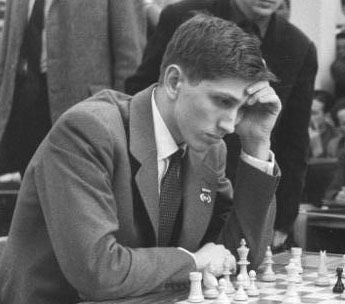
(Affiliate Link)
Quote by Geoffrey Colvin in chapter 4 of his book “Talent is Overrated: What really separates World-Class Performers from Everybody Else“:
Even Bobby Fischer was not an exception; when he became a grand master at age sixteen, he had been studying chess intensively for nine years. Subsequent research in a wide range of fields has substantiated the ten-year rule everywhere the researchers have looked. In math, science, musical composition, swimming, X-ray diagnosis, tennis, literature—no one, not even the most “talented” performers, became great without at least ten years of very hard preparation. If talent means that success is easy or rapid, as most people seem to believe, then something is obviously wrong with a talent-based explanation of high achievement.
Geoffrey Colvin reports that if one is going to take seriously the desire to become good at something than you must embrace the expectation that it is going to take at least ten years to outdo and reach above the current generation of your peers. No exception. Except I will add here an exception to that rule, without actually invalidating the Ten Year Rule (also known as the 10,000 hour rule). If your child chooses to engage himself in a talent that is in a new field of human activity or in a new cross-over of skills that did not exist before, than I believe your child will not have to train ten years to get to the top.
In a crowded talent field where there are tens of thousands of accomplished practitioners, such as in the violin world, your child will have a very arduous journey ahead in order to be heard over and above all the other great performers. However if you think of a talent field that is new and combined with a way to serve the needs of people, then maybe five thousand judicious hours, instead of 10,000 hours, will allow your child to become one of the best in his field. This is why I recommend parents help their children find opportunities in interesting talent cross-over fields where the supply is not yet over-abundant.

